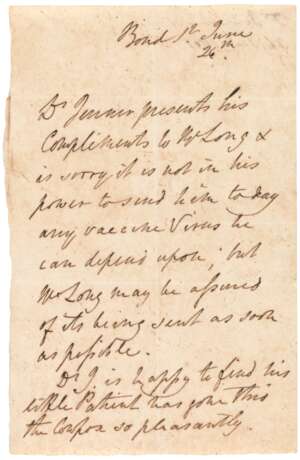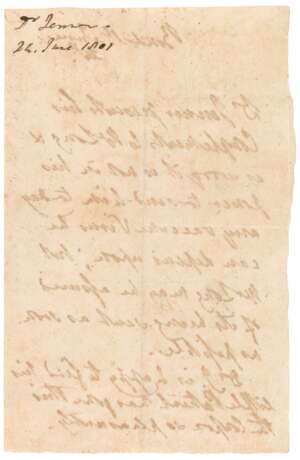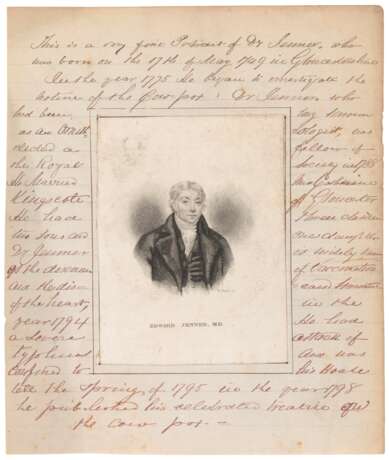ID 519300
Lot 11 | Edward Jenner (1749-1823)
Estimate value
£ 4 000 – 6 000
Autograph letter to ‘Mr Long’, ‘Bond Street’, [London], 26 June [1801].
One page, 185 x 119mm. Contemporary docket, apparently dating the letter ‘24 June 1801’, on the verso.
The ‘father of immunology’, Edward Jenner, who coined the term ‘vaccine’to describe his technique of inoculating against smallpox, writes to apologise for a delay in sending vital supplies. Writing in the third person, ‘Dr Jenner presents his Compliments to Mr Long & is sorry it is not in his power to send him today any vaccine Virus he can depend upon; but Mr Long may be assured of its being sent as soon as possible. Dr J is happy to find his little Patient has gone thro’ the Cowpox so pleasantly’.
Edward Jenner carried out his first experiment to inoculate against smallpox in May 1796; following the successful immunisation of James Phipps, he proceeded to inoculate more than two dozen children and adults with cowpox, witnessing the same protective effect thereafter. The significance of his experiments was quickly recognised by physicians in London and Jenner was encouraged to publish his findings; he titled the 1798 report ‘An inquiry into causes and effects of the variolae vaccinae’, using a name invented for the cowpox virus on his assumption that it was related to smallpox (Variola major) but came from the cow (vacca). It is from ‘variolae vaccinae’ that the terms ‘vaccine’ and ‘vaccination’ are derived. The recipient of the present letter, presumably a medical man, could be the English surgeon William Long (1747-1818) of St Bartholomew’s Hospital, London and Master of the Royal College of Surgeons from 1800.
[With:] an engraved portrait of Jenner, laid down onto a sheet (217 x 185mm), with biographical information added in a 19th-century hand.
| Artist: | Edward Jenner (1749 - 1823) |
|---|
| Artist: | Edward Jenner (1749 - 1823) |
|---|
| Address of auction |
CHRISTIE'S 8 King Street, St. James's SW1Y 6QT London United Kingdom | |
|---|---|---|
| Preview |
| |
| Phone | +44 (0)20 7839 9060 | |
| Buyer Premium | see on Website | |
| Conditions of purchase | Conditions of purchase |







